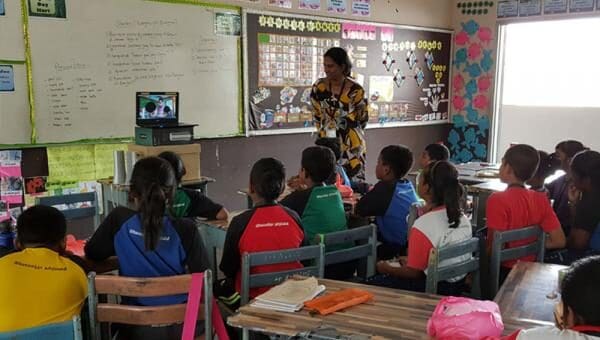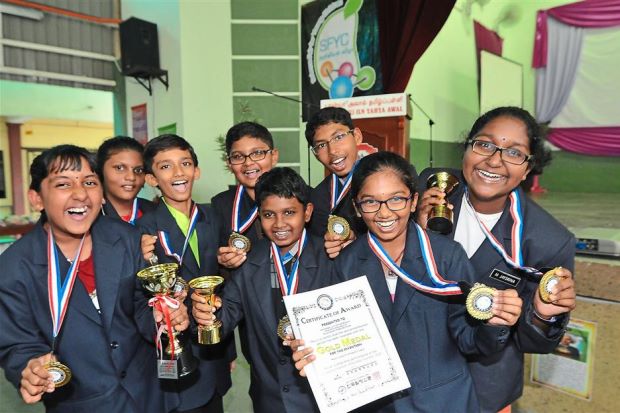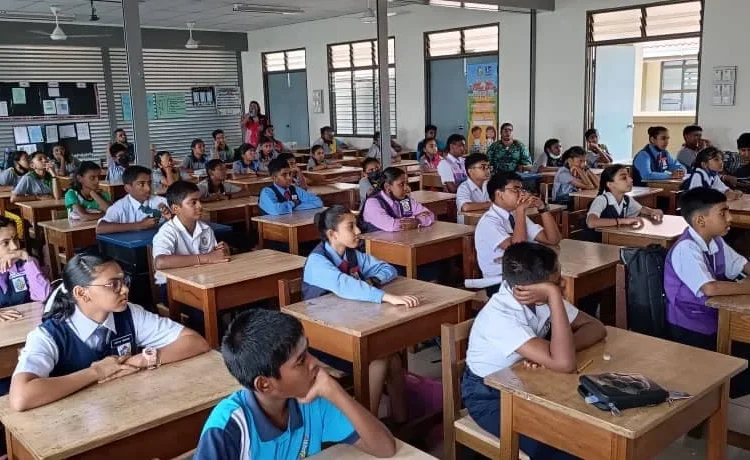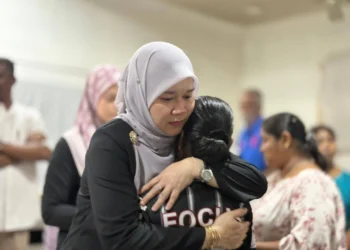Yesterday(20th February 2024), the Federal Court rendered a majority two-to-one decision, affirming the constitutionality of vernacular Tamil and Chinese schools. The court rejected the request for leave to appeal the merits of the case from two non-governmental organizations, namely the Islamic Education Development Council (Mappim) and the Coalition of National Writers’ Association (Gapena).
Judges Datuk Mary Lim Thiam Suan and Datuk Rhodzhariah Bujang of the Federal Court, in a majority decision, denied the request for leave, while Datuk Abdul Karim Abdul Jalil dissented. Consequently, the Court of Appeal’s previous ruling in November, affirming that vernacular schools fall within the purview of the Federal Constitution, remains unchanged.
“The apex court is not satisfied that the sole question posed has passed the threshold under both limbs of Section 96 (a) and (b) of the Courts of Judicature Act (CJA) 1964. Hence, the motion for leave to appeal is dismissed without costs,” Lim, who chaired the bench, said.

In civil proceedings, leave must be sought prior to a comprehensive consideration of the appeal’s merits, focusing on the legal questions raised. The apex court’s denial of leave implies that the Court of Appeal’s verdict on November 23 of the preceding year remains valid — asserting that employing Tamil and Chinese as the medium of instruction in Sekolah Jenis Kebangsaan (Tamil) and Sekolah Jenis Kebangsaan (Cina) is in accordance with the Constitution.
Initially, Gapena and Mappim, represented by lawyer Mohd Haniff Khatri Abdullah, presented eight questions, encompassing six constitutional queries and two related to the law, for consideration. However, the scope was narrowed down to a singular question — whether the medium of instruction in the process of teaching and learning in Chinese and Tamil national type schools, established under Sections 2, 7, and 28 of the Education Act 1996, is for an official purpose and therefore subjected to the obligation under Article 152(1) of the Federal Constitution, which requires the use of the national language (Bahasa Malaysia or Malay) for all official purposes?
Haniff informed the bench that this single question effectively addresses or includes the seven additional questions that were originally submitted.
“The question has covered the constitutional aspect of the matter from the High Court and hence, leave should be granted for the matter to be heard on its merits. Furthermore, this issue is of public importance, as such a challenge had not been made before since independence, and the apex court should hear the matter to bring a finality of the matter,” he added.
Among the respondents, four entities, namely the United Welfare of Retired Tamil Teachers Malaysia (Persatuan Gabungan Kebajikan Guru-guru Bersara Sekolah Tamil Malaysia), along with the Malaysian Chinese Language Council (Majlis Bahasa Cina Malaysia), Malaysian Tamil Neri Association (Persatuan Tamil Neri Malaysia) and United Association of Malaysian Tamil Students, did not contest Gapena and Mappim’s proposed question.
Conversely, 10 other respondents, including the government and the Minister of Education, opposed the solitary question seeking leave.

Senior federal counsel Liew Horng Bin, representing the government and the minister, asserted that while the presented question seemed to be of a constitutional nature, the court should ensure that it meets the criteria specified in Section 96 of the CJA. Liew also referenced a statement made last month by Education Minister Fadhlina Sidek, expressing support for the continued existence of vernacular schools.
Liew quoted Fadhlina saying that the federal government wants to keep vernacular schools, which means protecting and supporting them. This right is given to both the federal and state governments by Article 152(1)(b) of the Constitution, according to the minister. Liew added that the minister’s statement is straightforward and leaves no room for doubt.
Counsel Datuk Malik Imtiaz Sarwar, representing Chong Hwa Independent High School of Kuala Lumpur, informed the bench that he was directed to object to the question. He emphasized the difference between a political matter and a legal one. “Furthermore, like Liew had said, it is not necessary for the apex court to grant permission to hear constitutional issues,” he said.
Lim Hoon Shi, the counsel for Dong Zong and Jiao Zong, conveyed to the court that the chances of success for the two appealing NGOs are low, given that both the High Court and the Court of Appeal had already confirmed the presence of vernacular schools. “There was no dissenting judgement even in the Court of Appeal, where the written judgement by Datuk Azizul Azmi Adnan was unanimous,” he said.
Additional organizations that contested the question raised by Mappim and Gapena included Gerakan, MCA, MIC, as well as Persatuan Thamizhar Malaysia and Persatuan Tamilar Thirunal Perak. The latter two adopted the arguments presented by the other opposing parties.
Originally, four Malay NGOs questioned the legitimacy of vernacular schools, initiating the challenge in both the Kuala Lumpur and Kota Bharu High Courts. Nevertheless, only Mappim and Gapena pursued the final appeal, as the other two NGOs opted not to participate.
In a significant victory for vernacular schools, the Federal Court’s recent two-to-one decision affirming the constitutionality of Tamil and Chinese vernacular schools solidifies their place within the educational landscape. Indian parents, particularly those considering educational options, should take note of this legal affirmation, encouraging them to consider vernacular Tamil schools as a viable and constitutionally supported choice for their children’s education.
Source: The Edge
Follow us on Instagram, Facebook or Telegram for more updates and breaking news.








